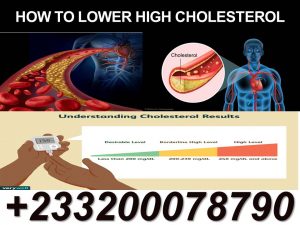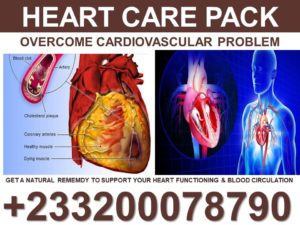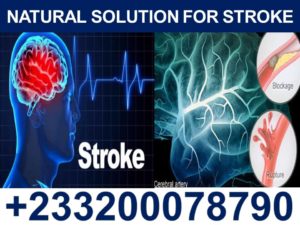Cholesterol is a waxy substance found in your blood. Your body needs cholesterol to build healthy cells, but high levels of cholesterol can increase your risk of heart disease.
With high cholesterol, you can develop fatty deposits in your blood vessels. Eventually, these deposits grow, making it difficult for enough blood to flow through your arteries. Sometimes, those deposits can break suddenly and form a clot that causes a heart attack or stroke.
High cholesterol can be inherited, but it’s often the result of unhealthy lifestyle choices, which make it preventable and treatable. A healthy diet, regular exercise and sometimes medication can help reduce high cholesterol.
Causes
Cholesterol is carried through your blood, attached to proteins. This combination of proteins and cholesterol is called a lipoprotein. There are different types of cholesterol, based on what the lipoprotein carries. They are:
- Low-density lipoprotein (LDL). LDL, or “bad” cholesterol, transports cholesterol particles throughout your body. LDL cholesterol builds up in the walls of your arteries, making them hard and narrow.
- High-density lipoprotein (HDL). HDL, or “good” cholesterol, picks up excess cholesterol and takes it back to your liver.
A lipid profile also typically measures triglycerides, a type of fat in the blood. Having a high triglyceride level can also increase your risk of heart disease.
Factors you can control — such as inactivity, obesity and an unhealthy diet — contribute to high cholesterol and low HDL cholesterol. Factors beyond your control might play a role, too. For example, your genetic makeup might keep cells from removing LDL cholesterol from your blood efficiently or cause your liver to produce too much cholesterol.
How do you get high cholesterol?
Eating too much saturated fat, trans fat, and cholesterol can cause high cholesterol. Saturated fat and cholesterol are in foods that come from animals, such as meats, whole milk, egg yolks, butter, and cheese. Trans fat is found in fried foods and packaged foods, such as cookies, crackers, and chips.
Can high cholesterol levels cause high blood pressure?
High cholesterol is associated with an elevated risk of cardiovascular disease. That can include coronary heart disease, stroke, and peripheral vascular disease. High cholesterol has also been linked to diabetes and high blood pressure.
How Does Cholesterol Cause Heart Disease?

When there is too much cholesterol (a fat-like substance) in your blood, it builds up in the walls of your arteries. Over time, this buildup causes “hardening of the arteries” so that arteries become narrowed and blood flow to the heart is slowed down or blocked. The blood carries oxygen to the heart, and if enough blood and oxygen cannot reach your heart, you may suffer chest pain. If the blood supply to a portion of the heart is completely cut off by a blockage, the result is a heart attack.
What Affects Cholesterol Levels?
A variety of things can affect cholesterol levels. These are things you can do something about:
- Poor diet. Eating saturated fat, found in animal products, and trans fats, found in some commercially baked cookies and crackers and microwave popcorn, can raise your cholesterol level. Foods that are high in cholesterol, such as red meat and full-fat dairy products, will also increase your cholesterol.
- Obesity. Having a body mass index (BMI) of 30 or greater puts you at risk of high cholesterol.
- Lack of exercise. Exercise helps boost your body’s HDL, or “good,” cholesterol while increasing the size of the particles that make up your LDL, or “bad,” cholesterol, which makes it less harmful.
- Smoking. Cigarette smoking damages the walls of your blood vessels, making them more prone to accumulate fatty deposits. Smoking might also lower your level of HDL, or “good,” cholesterol.
- Age. Because your body’s chemistry changes as you age, your risk of high cholesterol climbs. For instance, as you age, your liver becomes less able to remove LDL cholesterol.
- Diabetes. High blood sugar contributes to higher levels of a dangerous cholesterol called very-low-density lipoprotein (VLDL) and lower HDL cholesterol. High blood sugar also damages the lining of your arteries.
High cholesterol can cause a dangerous accumulation of cholesterol and other deposits on the walls of your arteries (atherosclerosis). These deposits (plaques) can reduce blood flow through your arteries, which can cause complications, such as:
- Chest pain. If the arteries that supply your heart with blood (coronary arteries) are affected, you might have chest pain (angina) and other symptoms of coronary artery disease.
- Heart attack. If plaques tear or rupture, a blood clot can form at the plaque-rupture site — blocking the flow of blood or breaking free and plugging an artery downstream. If blood flow to part of your heart stops, you’ll have a heart attack.
- Stroke. Similar to a heart attack, a stroke occurs when a blood clot blocks blood flow to part of your brain.
How can I lower my cholesterol levels?
The first step in reducing cholesterol is to maintain a healthy, balanced diet. It is important to keep your diet low in fatty food, especially food containing saturated fat, and eat lots of fruit, vegetables and wholegrain cereals. This will also help to prevent high cholesterol from returning. Other lifestyle changes can also make a big difference. It will help to lower your cholesterol if you do regular exercise.

The best and safest way to lower high levels of cholesterol in the body is by taking natural and organic products. Our cholesterol package works perfectly because they come in the form of the raw food itself in a proportionally balanced ratio as the body needs. It’s tackles the root cause of the cholesterol and treat it naturally with no side effects.








